As of the 9th October, Gas and Electricity Year Ahead Wholesale costs were lower when compared to last month’s report.
Oil is down from $60 to $58 a barrel although we did see $69 following the drone attacks on Saudi Oil facilities, which also impacted on Gas and Electricity prices. OPEC and Russia look to maintain a high price by extending their production cuts through to March 2020. However, trade disputes between the US, China and the EU, continue to suppress world economic growth and the price of Oil.
Electricity prices have decreased following news that the faults that were found in some French Nuclear reactors, will likely not mean their closure through the winter. There is the potential that this problem could surface again and cause price volatility. Wind continues to make a big contribution, replacing more expensive forms of generation. Although Coal provides a decreasing proportion of our Electricity, it remains an important contributor when demand is high and less reliable Renewables are low. Coal generation is due to end by 2025 as part of our target to reduce carbon emissions.
Despite a colder spell increasing domestic heating demand, Gas prices have fallen. There were ten LNG deliveries in September, up from the two we had in August. These supplies have allowed us to divert Gas into storage in readiness for the higher winter demand. Indications are that October will also see a significant LNG contribution.
The Met Office is forecasting average temperatures over the next few weeks, with the possibility of overnight frost. Although there will likely be some bright dry spells in the south, generally conditions will be wet and windy, so the weather should not cause any substantial price pressure.
The National Grid have said that a Brexit deal will not impact on our Interconnectors to Europe. There is more uncertainty as to what may happen if we exit without a deal on the 31st October, which the government still says is a possibility. Sentiment can be a big factor for Wholesale costs.
Wholesales prices are very competitive when compared to previous months. As we head into the colder months and with the latest Brexit deadline looming on the 31st October, securing 2019 / 2020 contracts should be considered. Events such as those that recently caused short term price spikes, would likely be more significant and prolonged should they occur this winter.
The influence of higher third-party costs is increasingly noticeable in Electricity contracts. These include, Transportation, Distribution and government policy levies. It is estimated, the Wholesale element makes up in the region of 45% of the Electricity bill and that is excluding the supplier margin, metering and VAT.
Please contact us on 0333 320 0475 to discuss options or to get a latest update.
On the 9th October, the Gas Year Ahead Wholesale cost was 46.21 (p/th), from 47.63 (p/th) in last month’s report and 30% lower than 2018.
The price pressures from the early closure of the Groningen Gas Field and the restriction of the use of the OPAL pipeline, bringing Russian Gas into Europe, have been absorbed.
September saw an increase in LNG deliveries, which have continued into October, allowing for a more comfortable supply position. Storage levels are currently 91% full compared to 69% this time last year, providing more confidence as we approach the colder months.
The recent high contribution of Wind generation has removed some of the burden from Gas.
Average temperatures have been forecast for the coming weeks, reducing the likelihood of a prolonged period of increased demand.
On the 9th October, the Electricity Year Ahead Wholesale cost was 49.55 (£/MWh), from 52.30 (£/MWh) in last month’s report and 21% lower than 2018.
There has been reassurance that the safety issue within French Nuclear reactors will not mean their closure through the winter. This news had a big impact in reducing costs.
Wind’s contribution remained high at 19% of generation in September and indications are that October will be similar, as is currently 25%. More turbines are due to be added, which removes some reliance on more expensive Gas, which contributed 36%, from 45% earlier in the year. Nuclear also showed an increased contribution at 22%, whilst Coal remained low at under 1%. This is still an important source of supply, before its closure in 2025.
Third Party Charges continue to increase regardless of how the Wholesale element changes, which has been very evident as we look to secure contracts for customers. These charges typically pay for the mechanisms, securing generation at peak periods.
Get in touch if you would like any more information.
"Indigo Swan were professional but with a personable approach. Their market knowledge allowed me to enter new contracts with confidence, this was something I was unable to do with my previous broker."
Joanna Thornton, Estate Manager
"The experience behind the Indigo Swan team, their passion and integrity were all important to us. They clearly understood the market and could provide the best advice. "
Phil Riseborough, Head of Facilities
"We’ve worked with other energy consultants, but with Indigo Swan we get real integrity and service that is way beyond our expectations. We have already saved over £120k."
Jason Wakefield, Procurement Manager
| Cookie | Duration | Description |
|---|---|---|
| TawkConnectionTime | session | Tawk.to, a live chat functionality, sets this cookie. For improved service, this cookie helps remember users so that previous chats can be linked together. |
| Cookie | Duration | Description |
|---|---|---|
| SRM_B | 1 year 24 days | Used by Microsoft Advertising as a unique ID for visitors. |
| Cookie | Duration | Description |
|---|---|---|
| CONSENT | 2 years | YouTube sets this cookie via embedded youtube-videos and registers anonymous statistical data. |
| MR | 7 days | This cookie, set by Bing, is used to collect user information for analytics purposes. |
| _ga | 2 years | The _ga cookie, installed by Google Analytics, calculates visitor, session and campaign data and also keeps track of site usage for the site's analytics report. The cookie stores information anonymously and assigns a randomly generated number to recognize unique visitors. |
| _gat_gtag_UA_12371872_1 | 1 minute | Set by Google to distinguish users. |
| _ga_* | 1 year 1 month 4 days | Google Analytics sets this cookie to store and count page views. |
| _gcl_au | 3 months | Provided by Google Tag Manager to experiment advertisement efficiency of websites using their services. |
| _gid | 1 day | Installed by Google Analytics, _gid cookie stores information on how visitors use a website, while also creating an analytics report of the website's performance. Some of the data that are collected include the number of visitors, their source, and the pages they visit anonymously. |
| Cookie | Duration | Description |
|---|---|---|
| ANONCHK | 10 minutes | The ANONCHK cookie, set by Bing, is used to store a user's session ID and also verify the clicks from ads on the Bing search engine. The cookie helps in reporting and personalization as well. |
| MUID | 1 year 24 days | Bing sets this cookie to recognize unique web browsers visiting Microsoft sites. This cookie is used for advertising, site analytics, and other operations. |
| test_cookie | 15 minutes | The test_cookie is set by doubleclick.net and is used to determine if the user's browser supports cookies. |
| VISITOR_INFO1_LIVE | 5 months 27 days | A cookie set by YouTube to measure bandwidth that determines whether the user gets the new or old player interface. |
| YSC | session | YSC cookie is set by Youtube and is used to track the views of embedded videos on Youtube pages. |
| yt-remote-connected-devices | never | YouTube sets this cookie to store the video preferences of the user using embedded YouTube video. |
| yt-remote-device-id | never | YouTube sets this cookie to store the video preferences of the user using embedded YouTube video. |
| yt.innertube::nextId | never | This cookie, set by YouTube, registers a unique ID to store data on what videos from YouTube the user has seen. |
| yt.innertube::requests | never | This cookie, set by YouTube, registers a unique ID to store data on what videos from YouTube the user has seen. |
| Cookie | Duration | Description |
|---|---|---|
| CLID | 1 year | No description |
| SM | session | No description available. |
| twk_idm_key | session | No description |
| _clck | 1 year | No description |
| _clsk | 1 day | No description |
